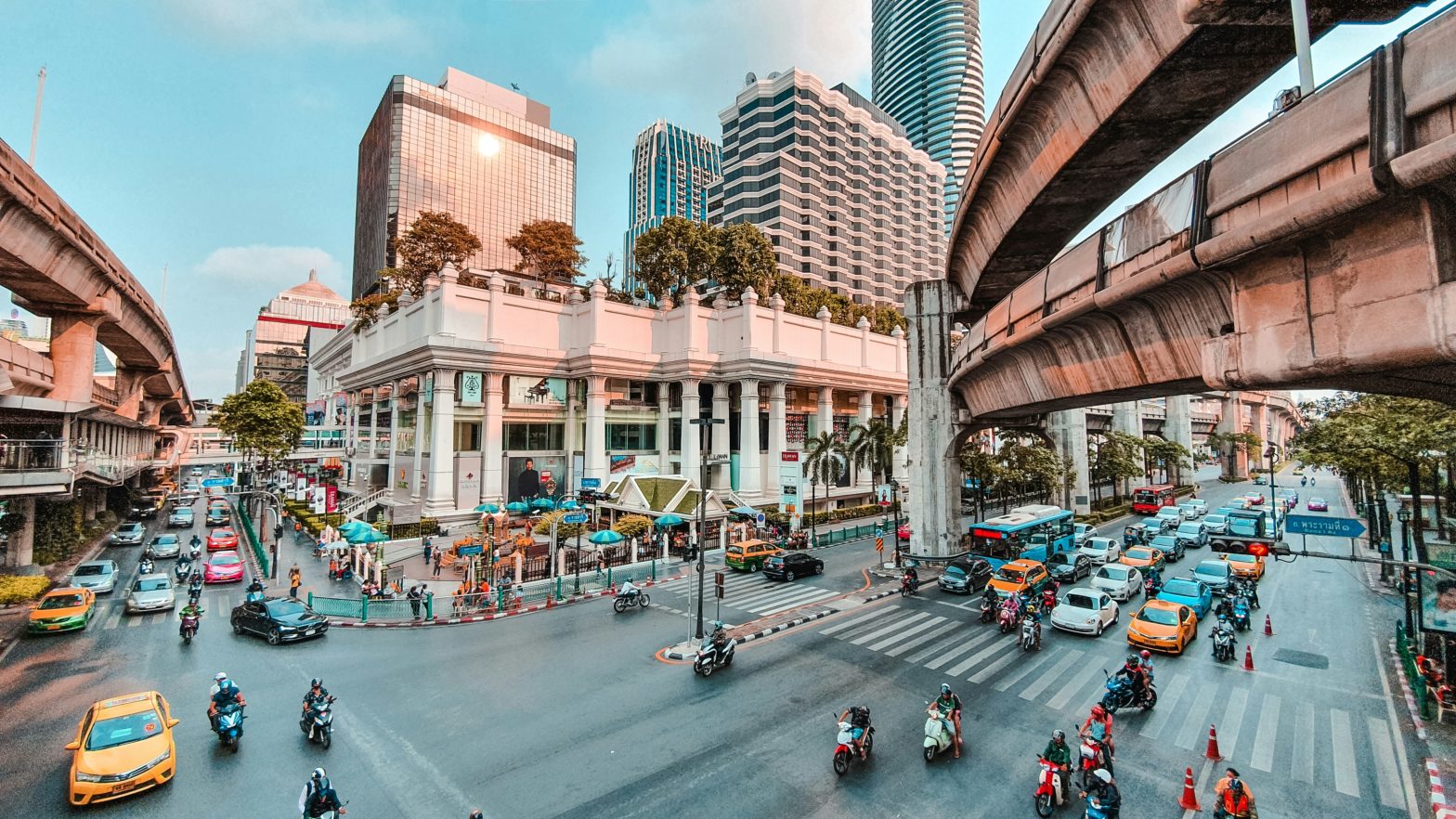
Photo: miltiadis-fragkidis-unsplash
Bangkok offers free public transport amid pollution crisis
27 January 2025
by Christopher Carey
Bangkok has introduced free public transport for a week in a bid to reduce soaring levels of air pollution in the Thai capital.
Since Saturday, all bus and electric train operators have been waiving fares, with the Thai government allocating 140 million Baht (US$4.17 million) in compensation for lost revenue.
Posting on X, the Thai Prime Minister Paetongtarn Shinawatra said the problem of particulate matter (PM) 2.5 was a national issue, adding that the government was “not complacent” and would “move forward with every measure to produce results quickly.”
Hundreds of schools across the city have also been closed due to the high levels of pollution and Shinawatra has asked local agencies to step up efforts to battle the issue by encouraging people to work from home.
Increase in use
Initial results have indicated an increase in uptake, according to Pichet Kunadhamraks, Director-General of Thailand’s Department of Rail Transport.
Kunadhamraks said a total of 1,634,446 people used free electric train services on Saturday – a 45.29 percent increase compared to average numbers recorded on the previous three Saturdays in January.
But some politicians have questioned whether the move will actually result in a drop in pollution in the long-term.
A 2024 study by researchers from the University of Barcelona and the Autonomous University of Barcelona found “no evidence” that the introduction of significantly reduced fares actually improved air quality.
The study examined a series of travel discounts introduced across Spain in September 2022.
“Across pollutants and specifications, we found no evidence that low-cost or free-of-charge public transportation financing schemes have improved air quality,” the report noted.
“Our results reveal that measures aimed at reducing transit prices may fail to achieve the claimed environmental benefits through a modal shift from private to collective modes of transport, which suggests that massive fare discounts may not represent an efficient allocation of public funds.”
Image: miltiadis-fragkidis-unsplash













